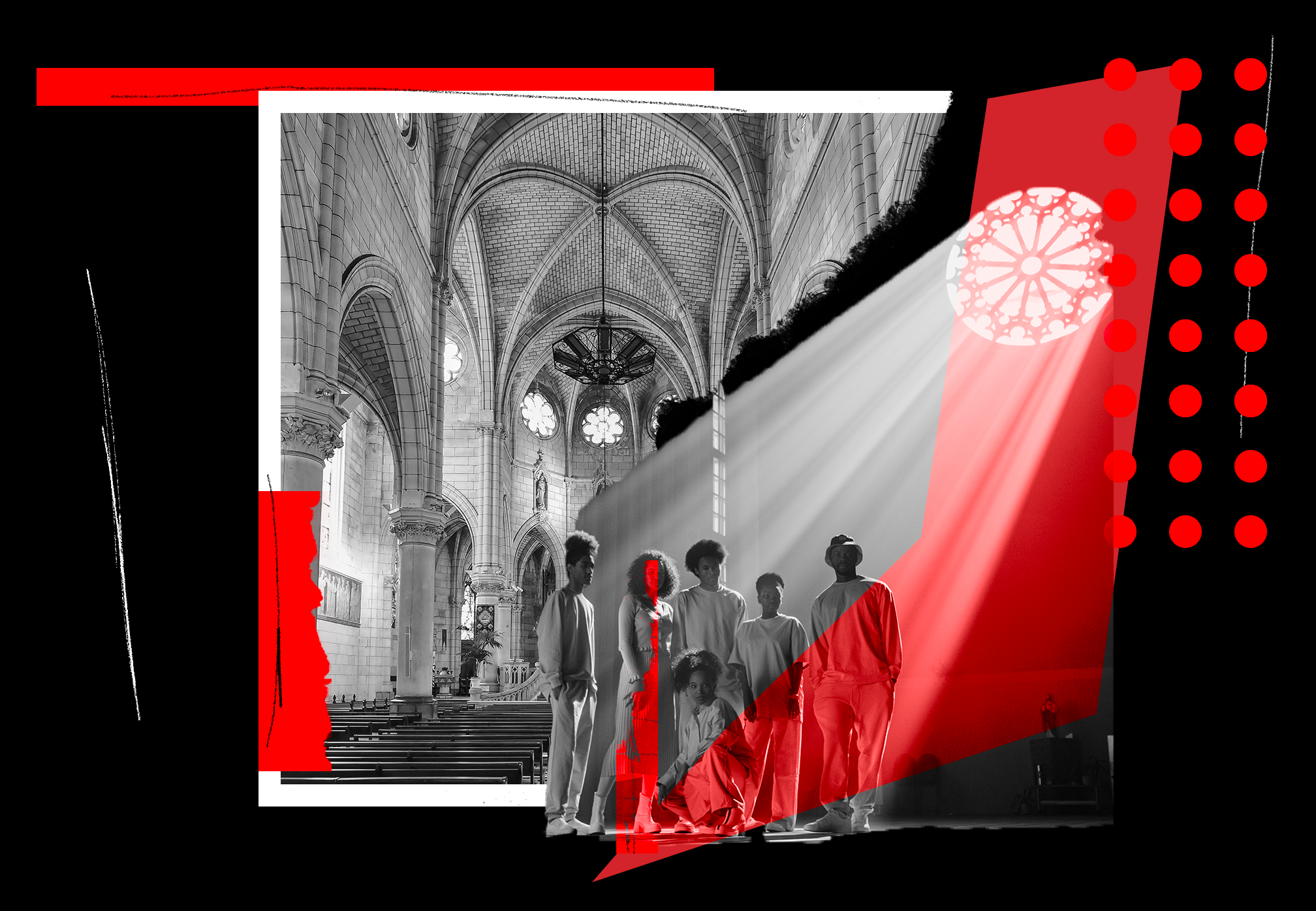 Features
Features
Almighty influence: Why Gospel music deserves more support and investment
Gospel Music Industry Alliance CEO Audrey Gray examines the influence of Gospel music and the need for sustainable models to grow the industry in the UK
What does Gospel music and its influence look like?
The Gospel Music Industry Alliance (GMIA), which represents the UK Gospel Music Community, defines UK Gospel Music as: "derived from the African, American and Caribbean musical experience relating to the Christian faith, delivered by a wide range of industry creatives and practitioners, incorporating both the Gospel genre and Gospel message delivered overtly or by inspiration."
The UK and Ireland Gospel music community spans across the breadth of each country, with independent artists working the scene virtually daily. Gospel artists deliver a wide range of genres and sonic vibes; from rock to pop, from hip hop to grime, from reggae to Afrobeat, and from R&B to garage. There are great examples of diversity and sound in choirs, such as Volney Morgan & New Ye, House Gospel Choir and London Community Gospel Choir.
Read this next: How Black women and queer communities are shaping the future of African electronic music
Gospel music is married to a core message: messages of hope, faith, love, Christian beliefs and life experiences, so it should be no surprise that an individual's cultural background is also part of their musical expression. This widespread expression of 'message, music and culture' has given rise to so many musicians and singers on tours and festival stages. Gospel music is embedded into beloved dance music genres such as house, disco, garage and techno, as well as influencing major global stars such as Beyoncé, Adele and Lauryn Hill, who are often produced by and supported by Gospel musicians and singers. You also have the Gospel sonics featured within commercial advertising with examples such as Karizma soundtracking a Google Chromebook campaign and Kanye West soundtracking a Paco Rabanne advert, as well as committing to Gospel music full time and launching his Sunday Service project.
The UK-US comparison?
The UK's vast cultural influences, developed by an expansive diaspora and rich heritage, should be noted as part of the UK's unique selling point. Although the UK Gospel music community is buzzing with award-winning artists, singers, musicians, producers - with high productivity coming from managers, media and promoters - the community could benefit from more connected and standardised systems to better facilitate long term growth.
When comparisons are made between the UK and the US Gospel music market, there are two notable variables. One being infrastructure: early in its development, the US followed a music industry model for the commercial music market and applied music business principles for church circuits. This combination of message, music, and business continues to aid today's US Gospel music commercial profile.
Read this next: Why dancehall isn't a major industry in the UK, and what needs to be done
The other variable, which should not be discounted, is how interlinked culture and lived experiences, “which are not mutually exclusive”, influence musical interpretation and expression. Some musical interpretations and expressions do not translate well across the Atlantic. Some things get lost in translation, some things get embraced as a novelty, and others have to be totally redesigned to be accepted. In fact, this also occurs within mainstream music where your favourite UK independent artist moves to the US to build their career, and often they are forever changed.

Why is commercial viability important?
All Gospel music markets need to be careful of becoming 'insular', which in turn withdraws them from commercial arenas, sustainable opportunities, and works in opposition to the goal of their music and message, i.e. reaching all people.
If you look at Kirk Franklin and Mary Mary's career path, you can see how these artists understood branding, utilised media and were savvy to music business models early in the day. As a result, their commercial viability has not been hindered by a dependence on church circuits or solely Christian audiences. This in turn made them attractive to TV networks, major labels, sponsors, extended their booking territories and overall commercial appeal. For any artist, raising your profile in this way is a great move. This model creates new platforms for Gospel artists and propels your message to a broader audience, ultimately setting the stage for your music and your message. UK Gospel artists making strides within this space include Guvna B, Kingdom Choir, Lurine Cato and Sarah Téibo.
Read this next: How misogynoir in the music industry has created a dangerous environment for Black women
Awards have an important role to play, as established accolades such as the Dove Awards and GRAMMYs with a strong affiliation with Gospel music indicate. Gospel appearances and performances add value to sponsor partnerships and increase viewership, which supports the overall production. That synergy is directly linked to the nominees and awardees benefiting from improved performances and media exposure. As well as strengthening the UK Gospel awards scene, GMIA is seeking to develop a reference board, consisting of gospel radio, media and music experts, to provide vital stats and data to UK and international awards bodies and potential investors, looking to obtain information that would best represent the sound and culture of the genre.
UK Gospel Music — what's lacking?
Significant support and investment are needed on an internal and external level. I see support as an internal matter, relating to Gospel music creatives & personnel, businesses and churches joining forces; then investment as external, coming from funding organisations, trade bodies and government programs. To build a suitable model, Gospel music creatives & personnel, businesses and churches need to determine what they want and implement strategies towards achieving them. When the community supports organisations such as GMIA, working with them to develop systems and best practices, this benefits the whole community, enabling purposeful strategic outcomes to be accomplished. This attracts the type of long-term investment required to grow and improve the industry. At the moment, UK Gospel music does not receive the same level of investment afforded to other genres and is often publicly masked under the meaningless 'urban' umbrella.
Last year's Black Lives in Music (BLiM) report revealed that '86% of all Black music professionals agree that there are barriers to progression' in the music industry, which speaks to the lack of investment being made to address this. GMIA is working with organisations to communicate the community's concerns and improve opportunities for Gospel music.
Forward planning
COVID-19 did a number on the entire music industry in 2020. It took some time for most artists to digest the initial blow and start forward planning. The hard fact is that relying on a gig culture could cripple you, and your music needs to do more for you. This is yet another reason why brand building and strong PR can provide additional 'by-products' to sustain your lifestyle during a crisis.
Within the Gospel arena, where the main stages are churches and venues, the COVID-19 crisis took away livelihood and community. As an artist and industry developer, I noticed the lack of music releases and online engagement. So I began free online mentoring sessions (Monday Mentor) for artists and music investors who rely on the Gospel music community to support their business, to encourage and explore different ways of working and developing new services. I also chaired a bi-monthly forum called Gospel Topics as a space for creative discussion and industry building, which is now running a music business development group called the Pioneers Group, which will develop sustainable models and best practices for the UK Gospel music industry.
Read this next: Why we started the Black Artist Database
Although COVID-19 stayed with us in 2021, encouragingly, there was a significant rise in music releases and collaborations from the Gospel music community, as well as virtual and hybrid events, such as listening parties, concerts, award shows, writing workshops and masterclasses. Going forward, I hope to see Gospel music represented and acknowledged for the impact and influence it has contributed across the creative industries. In addition, I look forward to developing projects that sustainably make room for creatives and encourage the community culture that shares knowledge and fosters supportive working.
Audrey Gray is the CEO of the Gospel Music Industry Alliance, follow her on Twitter
Discover Gospel Music:
AffinityX - online gospel radio
AStepFWD - UK Christian Charts and media platform
Gospel Music Industry Alliance (GMIA)


